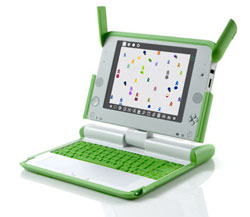Comparing the new generation of media to the old Beta vs. VHS format war of the 1980s is a no-brainer, but the most obvious comparison of Blu-Ray vs. the now-defunct HD-DVD is really only the tip of the iceberg — and like icebergs, what you can see isn’t the worst of it.
Any early adopters of video tapes felt burned when investing in a BetaMax player only to see VHS become the dominant player, so two decades later consumers were understandably cautious about throwing in with Blu-Ray or HD-DVD before the dust had settled and a victor emerged. But lurking in the shadows, if digital entertainment can even do that, was the dark horse of digital downloads [alright, enough with the purple prose].
Without being chained to one particular format, digital downloads would be a panacea, a non-combatant in the format wars, that would rise above the two competing media formats as they fought each other for supremacy. Your movies and TV shows would no longer be tied to a particular player — you could download them once and play them anywhere, on any device. And as a result of the HD-DVD / Blu-Ray infighting (and with a little help from BitTorrent), digital downloads started to catch on. You can now sidestep the whole HD-DVD / Blu-Ray battle and download your high-def video directly to your Apple TV, TiVo, Unbox, Netflix on Demand, Xbox 360, or Vudu. But there lies the rub.
Just try to get the HD movie you downloaded from your Apple TV to play on your Xbox 360, or try copying that TV show you downloaded to your TiVo to your iPod. You can’t do it. And suddenly you find yourself mired in a format war you didn’t even know about. The unifying potential of digital downloads has been squandered and carved up into a variety of competing, closed players. Faced with the plethora of locked-in media players, having to decide between just Beta vs. VHS seems downright quaint. Welcome to Format Wars 2.0, with still no winners. But you can guess who the losers are.

 The spin is that this enterprising kindergartner is learning a trade fixing broken laptops, and by introducing broken products into the marketplace, OLPC is doing its part to magnanimously create labor for more children. It’s a business model
The spin is that this enterprising kindergartner is learning a trade fixing broken laptops, and by introducing broken products into the marketplace, OLPC is doing its part to magnanimously create labor for more children. It’s a business model